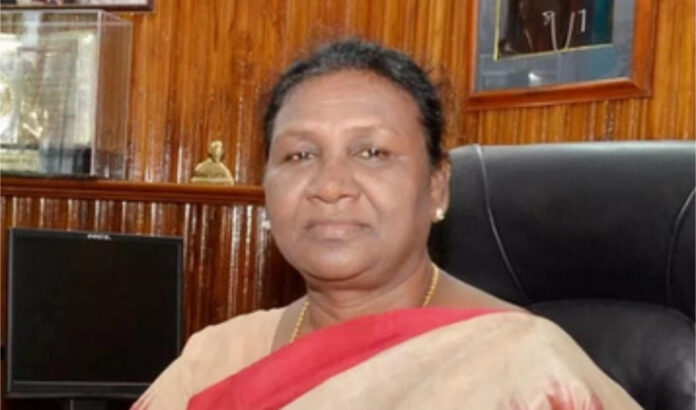NEW DELHI: Draupadi Murmu, the presidential candidate for India’s ruling party, filed her nomination in parliament on Friday and looks set to become the first tribal politician and only the second woman to hold the position.
The 64-year-old veteran politician from the eastern state of Orissa is a strong favorite as Prime Minister Narendra Modi’s Bharatiya Janata Party holds a majority in parliament. If successful, she would take over from President Ram Nath Kovind, whose term expires next month.
The Indian presidency is a largely ceremonial post, as executive authority is held by the prime minister. The president is elected indirectly by both houses of parliament and the legislative assemblies of each of India’s states and territories. Voting will be held on July 18.
“I thank all and seek cooperation from everyone for the presidential election,” Murmu said a day before filing her nomination. “I will meet all voters and seek their support.”
The primary duty of the president is to preserve the constitution and appoint the attorney general. The president is also the supreme commander of the Indian Armed Forces, and as such can declare war or conclude peace.
“The president of India reigns but does not rule,” Sanjay Hegde, a constitutional lawyer from the Supreme Court, told Arab News. “In India’s parliamentary system, he or she occupies a place as the constitutional head of state, who is almost invariably bound by cabinet advice.”
But the president does have some influence.
“In the event of a fractured mandate after a general election, the president has the choice of appointment among potential prime ministers,” Hedge said. “He or she can choose the person best placed to command the confidence of the lower house.”
Murmu will compete for the post with opposition candidate Yashwant Sinha, who was a senior BJP leader before he left the party in 2018 following a divergence with Modi on economic issues.
Sinha, 84, served as finance minister under a BJP government from 1998 to 2002 and as foreign minister between 2002 and 2004.
Political analyst Satish Kumar Singh told Arab News Murmu’s appointment was “a clever choice by the BJP,” as the ruling party was trying to expand its outreach among the marginalized tribal community which constitutes about 10 percent of India’s population.
“Droupadi Murmu comes from Orissa, where the BJP has been trying to make inroads for years. By nominating a local tribal leader, Modi is trying to improve his party’s position among the crucial tribal population,” he said.
It will be very difficult for tribal members of parliament who sit in the opposition ranks to vote against a tribal woman.
“Murmu’s candidacy also created a rift in the opposition camp with some opposition-run states like Orissa and Jharkhand deciding to back the tribal presidential candidate,” Singh added.
“This might be a presidential election but the whole calculation has been done keeping in mind the future electoral process.”

